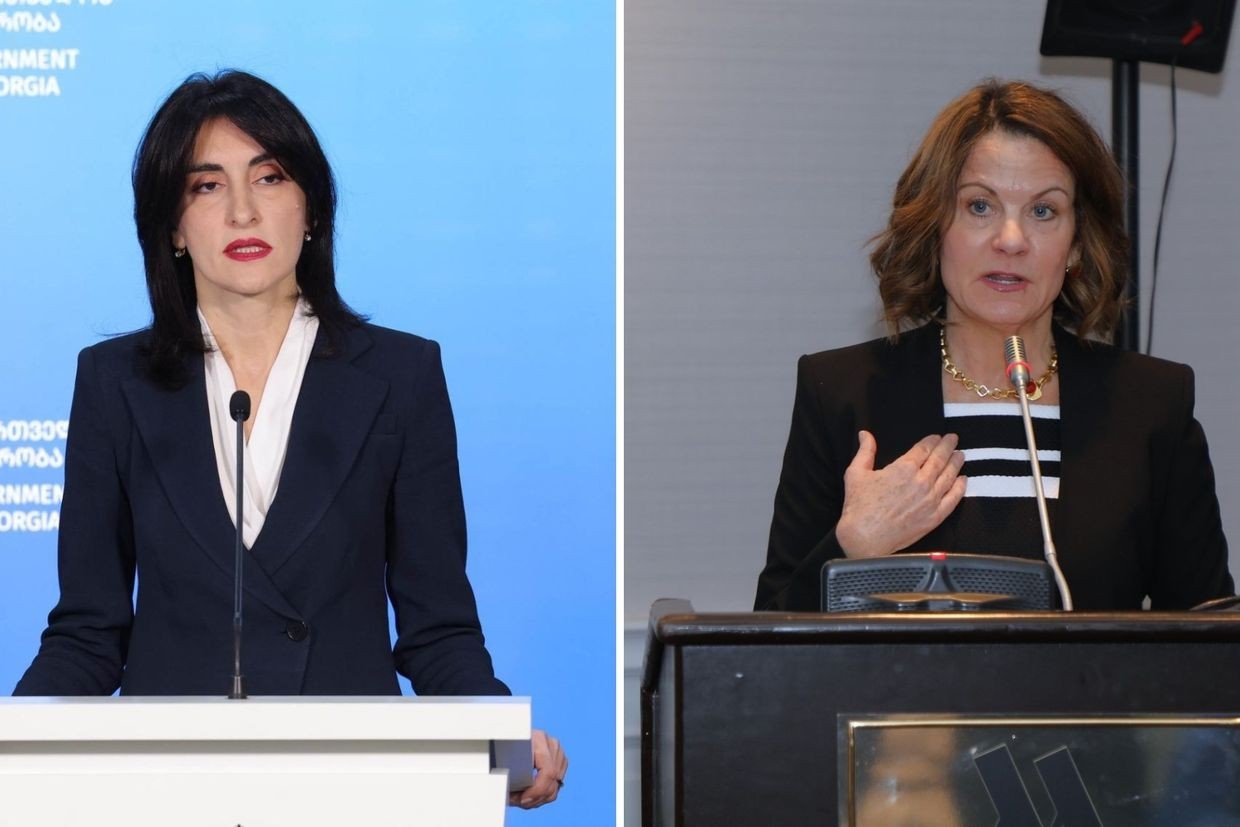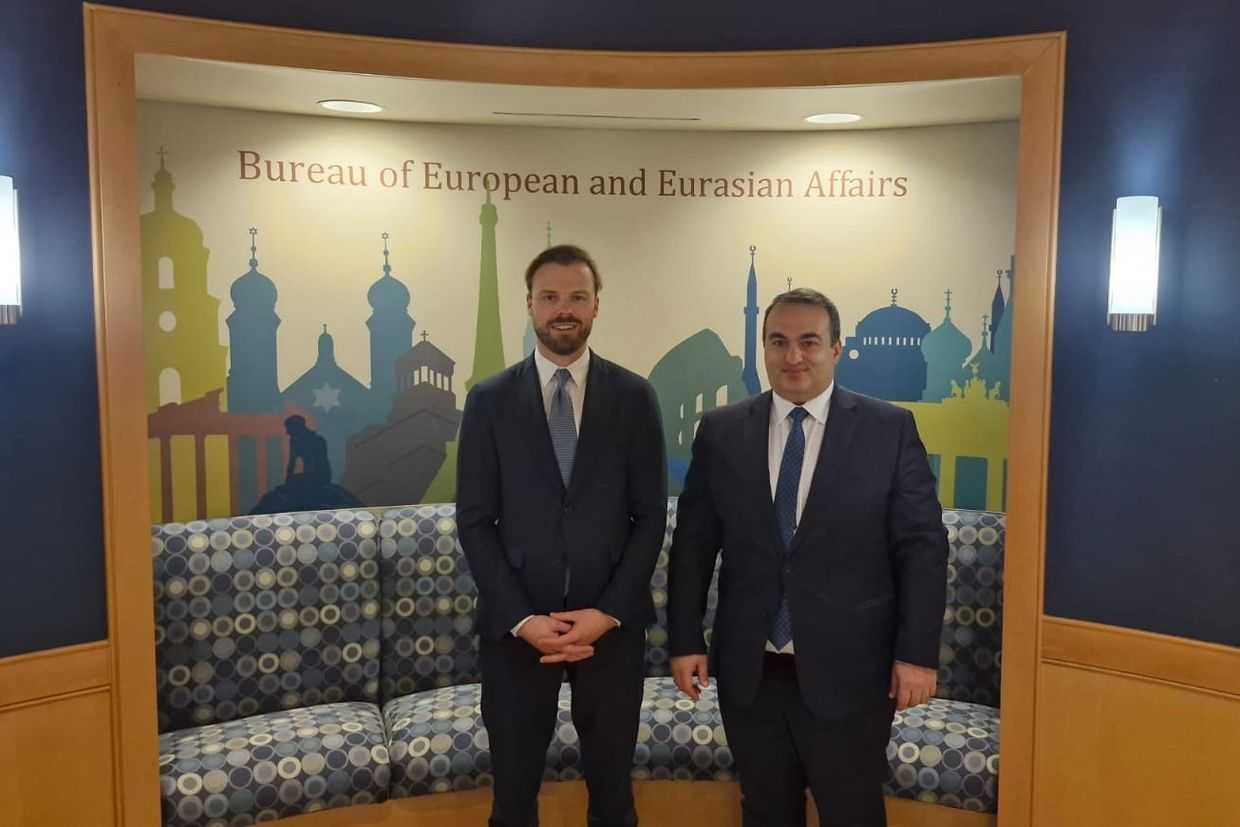Georgian Dream blames others for strained US–Georgia relations as US Ambassador resigns

In an interview with pro-government media outlet Imedi, Georgian Foreign Minister Maka Botchorishvili shared the government’s ‘deep’ concern regarding the current state of US–Georgia relations, adding that ‘this is not our fault’. The statement came after US Ambassador Robin Dunnigan resigned, citing personal reasons.
‘Over the past few years, we’ve been witnessing the dramatic deterioration of these relations’, a process shaped by ‘various actors at different times’. including ‘USAID, the organisations it funded, and the embassy itself also [played] a role’, Botchorishvili said on Thursday.
According to her, the US now has the opportunity to ‘start a new chapter in our relations’ with a new representative.
‘I’ll leave it to the public to judge whether, under these conditions, this particular embassy — or let’s put it this way, an embassy in this form — was really capable of contributing to an improvement in relations’, she added, offering a pointed critique of Dunnigan and her team.
Dunnigan, who was appointed as ambassador to Georgia in 2023 during the Biden administration, announced her resignation on Thursday morning, emphasising that the US government did not request her return.
‘I am more certain today than ever that the core values that bind Americans and Georgians will ensure that our special partnership and friendship endures’, she said in Thursday’s statement, noting that she will continue her work until she departs in July.
Dunnigan’s ambassadorship coincided with an unprecedented deterioration in US–Georgia relations, amid the Georgian Dream government’s adoption of repressive laws, parliamentary elections marred by major violations, and police violence against anti-government protesters.
Against this backdrop, the US first suspended its strategic partnership with Georgia in November of last year. It later sanctioned the billionaire founder and honorary chair of Georgian Dream, Bidzina Ivanishvili, for ‘undermining the democratic and Euro-Atlantic future of Georgia for the benefit of the Russian Federation’.
This period was also marked by escalating tensions between the ruling party and the US Embassy, with the government accusing the embassy and some American organisations — including USAID and NED — of acting against the Georgian state, while the embassy pushed back, challenging the party’s policy and confrontational rhetoric, including through social media cards.
Botchorishvili was not the only Georgian Dream politician to comment on Dunnigan’s resignation and what the change might mean for US–Georgia relations.
‘The Georgian government is ready for a reset in relations’, Kakha Kaladze, a leading figure in the ruling party and the mayor of Tbilisi, said, commenting on Dunnigan’s retirement. He added that ‘there are many questions surrounding her departure in this way’.
‘For us, strategic partnership and friendship with the US are of utmost importance — but they must be mutual. There were individuals involved in this process who were obstructive, who fed the administration false information, who called white black. But I’m confident that everything will change radically’, Kaladze said.
Georgian Dream leaders have repeatedly expressed hopes that Donald Trump’s election as US president would help reset relations between the two countries, making a concerted effort to court his administration while often echoing Trump’s rhetoric when addressing domestic issues.
However, the change in administration did not lead to a radical shift in policy toward Georgia, with the sanctions against Ivanishvili still in place and the bipartisan MEGOBARI Act — introduced during the Biden administration and calling for sanctions against representatives of Georgian Dream — passing the US House of Congress in May, moving the bill one step closer to becoming law.

In mid-May, Georgian Prime Minister Irakli Kobakhidze published a lengthy open letter addressed to Trump and Vice President JD Vance, complaining about the lack of high-level talks and communication between their administration and the Georgian Dream government.
One of the latest flashpoints between Georgian Dream and the US Embassy came on 28 May, when the embassy said that Ivanishvili had rejected a meeting request with Dunnigan, who had been tapped to deliver a message on behalf of Secretary of State Marco Rubio and the Trump administration.
Ivanishvili responded in kind, saying the embassy’s message was ‘incomprehensible to me because the embassy knows very well all the details related to this issue’.
Ivanishvili said he had ‘deep respect’ for Rubio, but that he had previously told the US he would refuse to have high-level talks as long as personal sanctions — which he referred to as ‘blackmail’ — were in place.
‘I hope that the US Embassy will respond positively to the Georgian government's offer to renew the Georgian-American strategic partnership from a clean slate and a specific guide’, he concluded.











